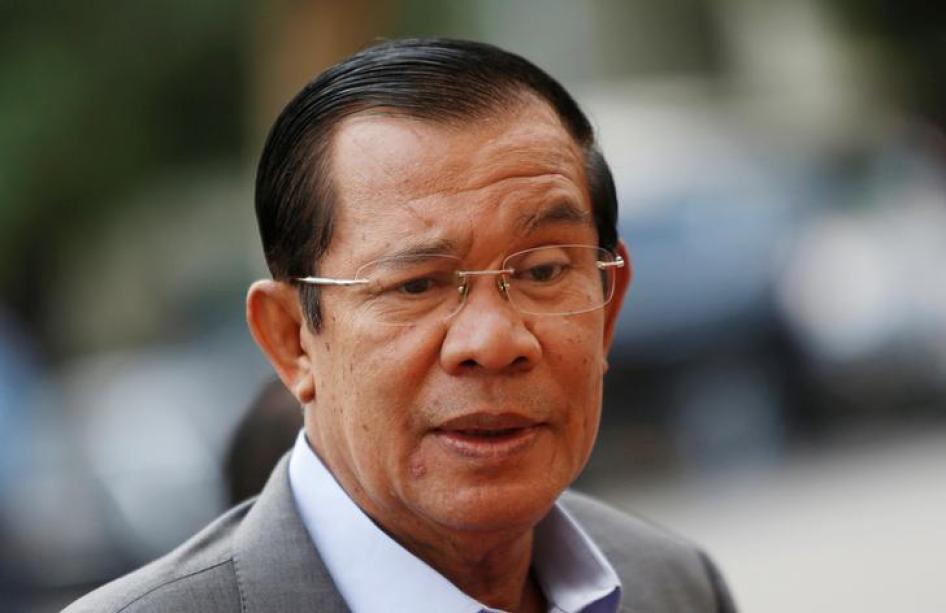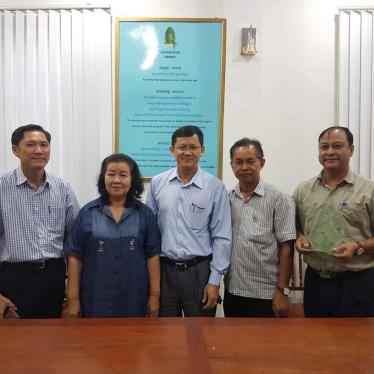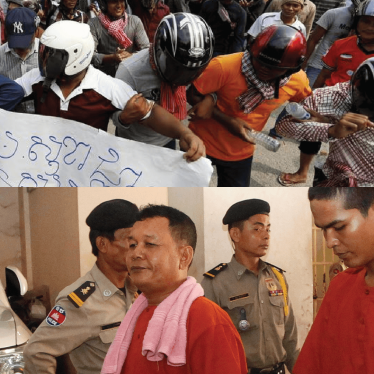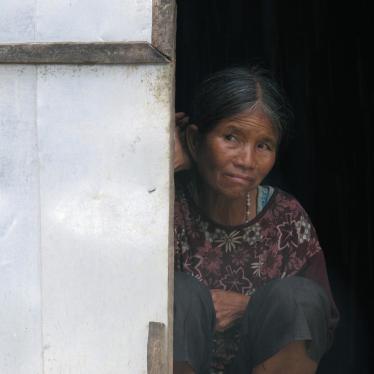(New York) – The Cambodian government’s revocation of a repressive regulation on nongovernmental organizations (NGOs) should jump-start genuine efforts to repeal all laws that restrict basic rights, Human Rights Watch said today.
On November 27, 2018, Cambodia’s interior minister rescinded Notice No. 175, which requires nongovernmental organizations to notify local authorities three days before conducting any activities. Local authorities and police regularly used this regulation to interfere with and block activities of human rights groups and other organizations.
“The Cambodian government’s repeal of the three-day notice requirement is a small step in the right direction, but it won’t end the harassment and threats against activist groups in Cambodia,” said Phil Robertson, deputy Asia director. “What’s needed is a serious government commitment to repeal all laws that have been used to repress the activities of independent groups.”
Over the past year, the Cambodian government has intensified its crackdown on opposition party supporters, land rights activists, human rights defenders, and trade unionists. Organizations working on human rights, land and natural resource rights, labor protection, and democracy faced significant surveillance and intimidation, arbitrary arrests and prosecutions, and lengthy pre-trial detention.
Since 2015, the government has adopted several repressive laws and tightened restrictive provisions in existing statutes. These revisions have been made stealthily, without public consultations with the people affected by the actions. The government has imposed severe restrictions on the rights to free expression, peaceful assembly and association. Rights-infringing new legislation includes the Law on Associations and Non-Governmental Organizations (LANGO), the Trade Union Law, a lese majeste (insulting the monarchy) clause in the Penal Code, and amendments to the Constitution.
Since the adoption of the LANGO in mid-2015, organizations have experienced significant government restrictions. Local authorities routinely misread and misinterpret the law, demanding that NGOs to seek permission before conducting activities. Organizations frequently report that local authorities and police interfere with their meetings and training sessions, frequently seeking to shut down events, or sit in the back of rooms, taking photos and requesting attendance lists of meeting participants.
Under LANGO, the authorities have shut down independent groups or denied them registration based on vaguely, undefined, and broadly formulated concepts such as “political neutrality.” Officials have also imposed burdensome reporting requirements that smaller groups are unable to meet.
In July 2016, the government targeted a consortium of NGOs working on human rights protection and monitoring around the elections, the so-called “Situation Room,” based on groundless allegations that the consortium had violated the LANGO and sought to topple the government.
In August 2017, the Foreign Affairs Ministry ordered the closure of the US-funded National Democratic Institute (NDI) and the expulsion of its non-Cambodian staff citing LANGO and the 1997 Tax Law. In October 2017, the government also arbitrarily suspended the land rights group Equitable Cambodia and prevented it from conducting its activities on the basis of groundless accusations and for a period going beyond the legally provided 15-day suspension period under the law.
Cambodia has ratified core international human rights treaties that enshrine the rights to freedom of expression, assembly and association. However, the Cambodian government has adopted numerous laws, regulations and policies in violation of those rights.
“The Cambodian government should stop considering activist groups a threat and start seeing them as valuable partners for improving Cambodia,” Robertson said. “Foreign governments and donors who have supported civil society in Cambodia should call for these repressive laws to be immediately repealed.”







